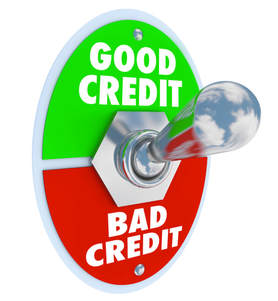Want A Low Mortgage Interest Rate? Here's What You Need to Know!

Your credit!
Nothing affects your ability to qualify for a mortgage loan more than your credit. In fact, it determines the amount of mortgage interest rate you pay.
Your credit rating also goes much deeper, extending into practically all areas of your life!
How Your Credit Affects the House You Buy and More

Because the world has become increasingly dependent on credit to make purchases like televisions, furniture, vacations, and the like, it has become a critical element for determining a borrower's financial ability to repay.
That's why a good credit rating is paramount to getting the material objects you want in life. But what if you're not ready to buy a home?
A good credit rating is still important. For example, landlords consider a lease as a loan. They use your credit rating to determine whether or not they will rent to you. If your credit rating is poor, you may get denied an apartment.
How Bad Credit Works Against You

Worse, car dealers and banks will charge a higher interest rate on your car loan, and that means higher monthly payments.
If you're looking for a job, many prospective employers run your credit report to see how fiscally responsible you are. If the report shows you have more debt than the salary you're offered, they may not hire you.
And, if you have dreams of starting a business, you'll need good credit to get a business loan. Bad credit won't let you pursue your dream.
The Difference Between a Credit Report and a Credit Score

A credit report is a record of the money you've borrowed, your history of repayment, and how much open credit is available to you.
Here's a list of what you'll find on your credit report:
- Debts and history--It will have a list of your debts such as credit cards, students loans, and car loans, as well as how you've re-paid them.
- Collection Agency--Any unpaid bills or bills that were significantly late in payment that went to a collection agency will also be listed, including medical and utility bills.
- Your credit worthiness--Inquiries regarding your creditworthiness, including the number of times inquiries were made about your credit, and if you were given credit based on the inquiry.
You can see how valuable this information would be to a landlord, prospective employer, utility companies, etc.
Credit Score
Your credit score, which is a numerical score, shows how likely you are to repay your debts. Credit scores range between a low of 300, and a high of 850 with the average credit score around 725. If your score is in the 600's, you can still get a loan, but your options will be limited and your interest rate will be higher.
So, how are credits points figured? They are based on the following:
- Payment history--It shows your ability to repay your debts on time. Late payments will lower your score.
- Total debt--Your credit score shows the total amount of debt you owe including student loans, car loans, and credit card. If your credit cards are at their limit, this can lower your score even if the amount owe is small.
- Credit history and management--If you demonstrate a pattern of managing your credit wisely, it will reflect on your score. Keeping credit card balances low and paying your bills on time positively influences your score.
- New credit and debt--If you apply for several new credit cards at one time, your credit score can go down.
- Types of credit--Your credit score shows the types of credit you currently have such as retail accounts, credit cards, finance company accounts, installment loans, and mortgages.
Generally, the higher your credit score the more options you have, including a lower interest rate. Whether you're buying a house now or saving for the future, make sure you make timely payments on any debt you acquire.
How you manage your credit now affects what you can afford to buy in the future.
When you're ready to close on your new home, consider Lilly Title & Settlement. We're woman-owned and a full service settlement agency serving Staunton, Waynesboro, and Augusta County.
 RSS Feed
RSS Feed